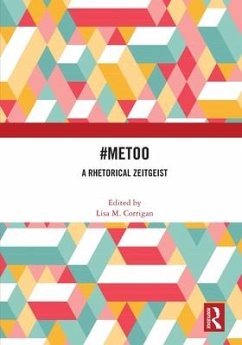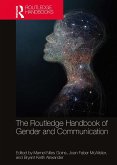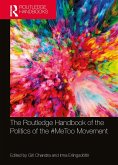This edited collection on #MeToo activism challenges the overwhelming whiteness and straightness of #MeToo discourse and coverage. Using intersectional and decolonial frameworks and historical, archival, organizational and legal methods, these essays offer a rich exploration of #MeToo to understand how activism around sexualized violence reproduce and harm a wide variety of people.
The swift and powerful arrival of #MeToo as a compilation of complaints about sexual misconduct (especially in the workplace) has created pressure to dive deeper into the history of sexual assault and abuse in the United States. #MeToo: A Rhetorical Zeitgeist answers the call for more complicated analyses of systemic sexual harassment and abuse with essays that are deeply concerned with the whiteness and heterosexuality of #MeToo coverage and media framing to understand how and why #MeToo began to capture the public's attention in 2017 against the backdrop of Donald J. Trump's presidential administration.
These essays offer the first comprehensive study of the rhetorical politics of #MeToo. They tackle the complexities of sexual harassment, sexual violence and rape beyond white celebrity discourse to understand: how both violence and #MeToo activism affect transgender people; how #MeToo fails Black male victims of assault and rape; how Indian-American masculinity and comedy skirt sexual accountability; how the legal and affective precedent in the Supreme Court during the Kavanaugh hearings amplified concerns about sexual assault and rape; decolonial approaches to resisting sexualized violence from indigenous peoples; and narratives about assault from within the higher education community.
The chapters in this book were originally published as a special issue of Women's Studies in Communication.
The swift and powerful arrival of #MeToo as a compilation of complaints about sexual misconduct (especially in the workplace) has created pressure to dive deeper into the history of sexual assault and abuse in the United States. #MeToo: A Rhetorical Zeitgeist answers the call for more complicated analyses of systemic sexual harassment and abuse with essays that are deeply concerned with the whiteness and heterosexuality of #MeToo coverage and media framing to understand how and why #MeToo began to capture the public's attention in 2017 against the backdrop of Donald J. Trump's presidential administration.
These essays offer the first comprehensive study of the rhetorical politics of #MeToo. They tackle the complexities of sexual harassment, sexual violence and rape beyond white celebrity discourse to understand: how both violence and #MeToo activism affect transgender people; how #MeToo fails Black male victims of assault and rape; how Indian-American masculinity and comedy skirt sexual accountability; how the legal and affective precedent in the Supreme Court during the Kavanaugh hearings amplified concerns about sexual assault and rape; decolonial approaches to resisting sexualized violence from indigenous peoples; and narratives about assault from within the higher education community.
The chapters in this book were originally published as a special issue of Women's Studies in Communication.








